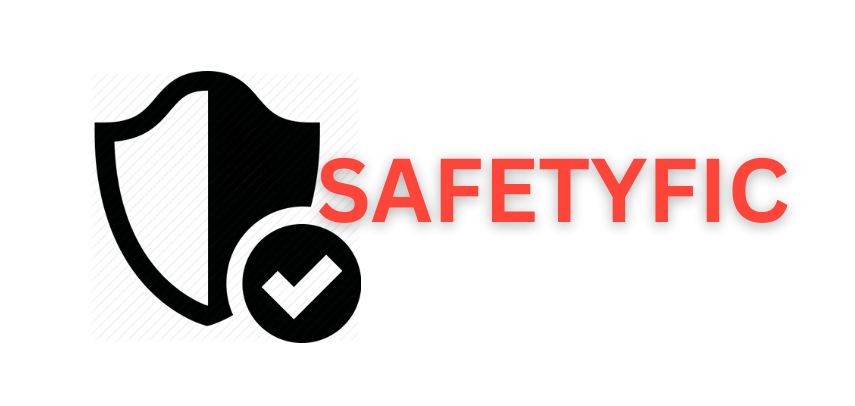Knowing how to stop a grill fire promptly can prevent a pleasant outdoor gathering from turning into a dangerous situation. Grill fires can occur unexpectedly due to grease buildup, flare-ups, or improper use of flammable materials. Understanding the steps to take in the event of a grill fire is crucial for safety. Reacting quickly and effectively involves knowing how to manage the heat source, controlling oxygen supply, and having the right firefighting equipment on hand.
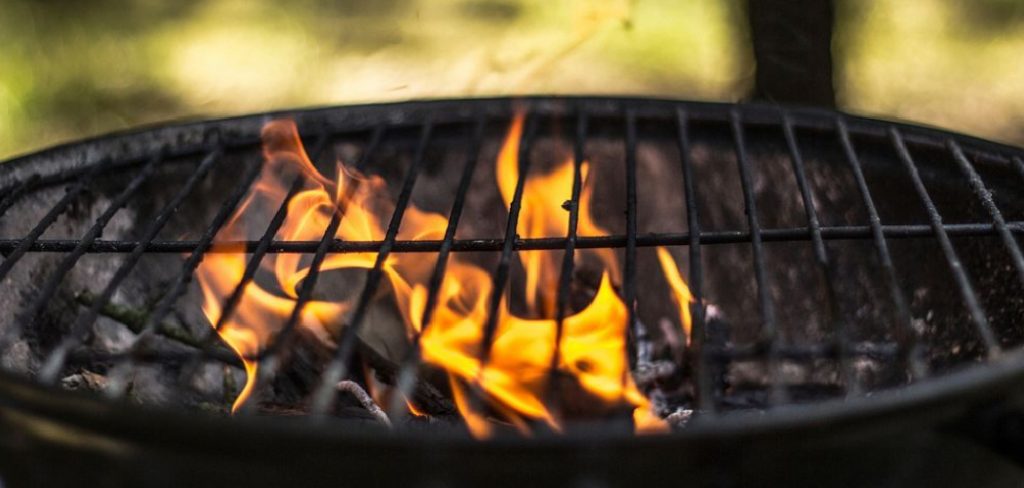
This guide will outline essential techniques and safety measures to extinguish a grill fire safely, ensuring minimal damage and protecting yourself and others from harm. Whether you’re using a gas grill, charcoal grill, or electric grill, being prepared to handle a fire can make all the difference in maintaining a safe and enjoyable outdoor cooking experience.
Common Causes of Grill Fires
Grill fires can be triggered by a variety of factors, often related to the maintenance and operation of the grill. One of the most prevalent causes is grease buildup. Over time, grease and fat can accumulate in the grill, particularly in catch trays and grills, creating a highly flammable environment. A sudden flare-up can ignite these residues, leading to a fire that can quickly spread.
Another common cause is the use of improper grilling techniques or flammable materials. This includes using too much lighter fluid, igniting a grill with the lid closed, or grilling near flammable objects like wooden decks or dry foliage. Additionally, leaving the grill unattended can result in uncontrolled cooking temperatures and potential fire hazards.
Faulty equipment can also lead to grill fires. Leaks in gas lines, malfunctioning regulators, or broken burners can release gas or cause uneven heating, both of which are significant fire risks. Regular inspection and maintenance of your grill can help identify and mitigate these issues before they result in a dangerous fire.
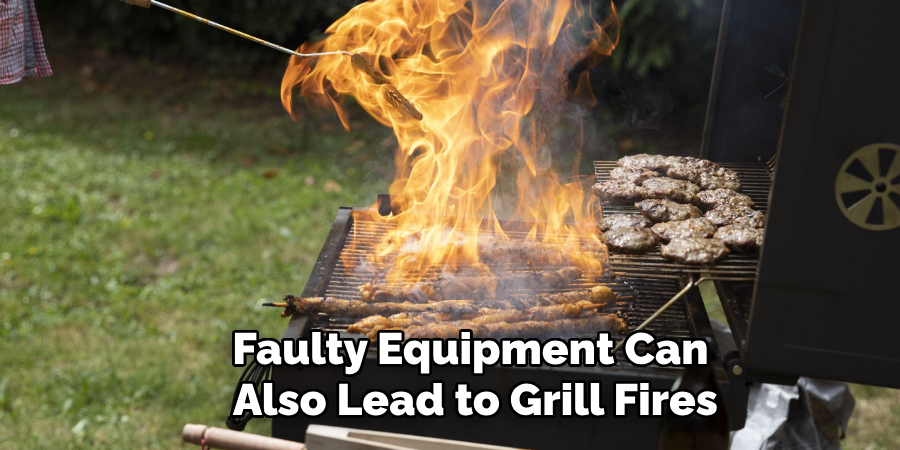
Understanding these common causes is the first step in preventing grill fires. Proper cleaning, careful use of fire-starting materials, and routine equipment checks contribute to a safer grilling environment.
10 Methods How to Stop a Grill Fire
1. Understanding the Causes of Grill Fires
Understanding the causes of grill fires is the first step in preventing and managing them. Most grill fires result from grease buildup, flammable materials placed too close to the grill, or malfunctioning equipment. Grease and fat can accumulate in the grill’s drip tray and on the cooking grates, creating a significant fire hazard. Flammable items such as paper plates, towels, or even overhanging tree branches can catch fire if placed too close to the grill. Recognizing these risks helps in taking preventive measures to minimize the chance of a fire starting.
2. Preparing a Safe Grilling Area
Preparing a safe grilling area is crucial for preventing fires. Ensure your grill is positioned on a flat, stable surface, away from any flammable materials, including your house, deck railings, and overhanging trees. Keep a minimum distance of ten feet from any structures. Have a fire extinguisher, a bucket of sand, or a garden hose nearby in case of emergency. Establishing a safe grilling zone reduces the risk of accidental fires and provides quick access to firefighting tools if needed.
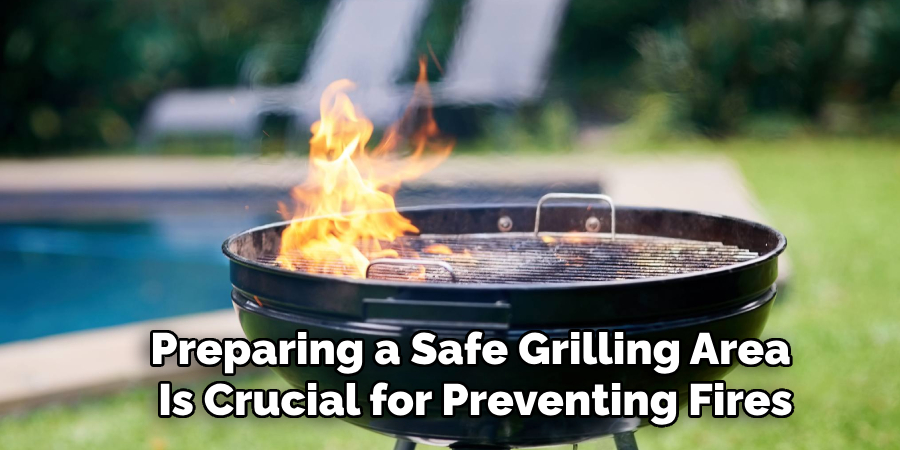
3. Regular Cleaning and Maintenance
Regular cleaning and maintenance of your grill are vital for preventing grease fires. After each use, clean the cooking grates to remove any food residue and grease. Periodically check and clean the drip tray, as accumulated grease can ignite during cooking. Inspect the burner tubes and other components for blockages or damage. Replace any worn or faulty parts promptly. A clean and well-maintained grill operates more safely and efficiently, significantly reducing the risk of fire.
4. Monitoring the Grill at All Times
Never leave your grill unattended while it is in use. Constant supervision allows you to react quickly to any signs of trouble, such as excessive smoke or flare-ups. Keep a close eye on the temperature and adjust the heat as necessary to prevent overheating. If you need to step away from the grill, have someone else take over monitoring duties. Vigilance is a key factor in preventing minor issues from escalating into full-blown grill fires.
5. Using a Spray Bottle of Water
A spray bottle of water can be an effective tool for controlling small flare-ups on a grill. Fill a clean spray bottle with water and keep it within arm’s reach while grilling. If you notice small flames or flare-ups caused by dripping fat or grease, lightly mist the area with water to cool it down and extinguish the flames. However, be cautious not to use too much water, as it can cause steam burns or splatter hot grease. Using a spray bottle allows for targeted application and helps manage flare-ups before they grow larger.
6. Smothering the Flames
If a fire breaks out on your grill, smothering the flames can be an effective method to stop it. Close the grill lid to cut off the oxygen supply, which is necessary for the fire to sustain itself. For gas grills, turn off the burners and close the fuel supply valve. If using a charcoal grill, close the vents to reduce airflow. This method deprives the fire of oxygen, causing it to die down. It’s essential to keep the lid closed until the flames are completely extinguished to prevent re-ignition.
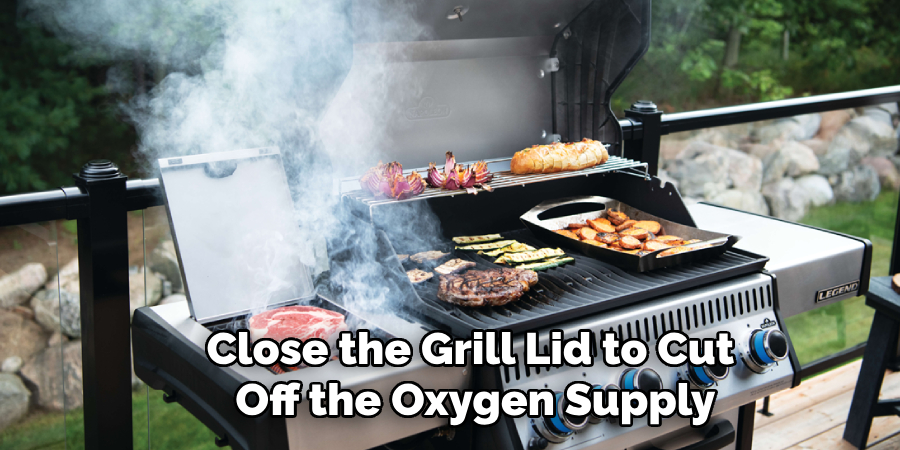
7. Using Baking Soda or Salt
In the event of a grease fire, baking soda or salt can be used to extinguish the flames. Baking soda releases carbon dioxide when heated, which helps smother the fire. Keep a box of baking soda or a container of salt near your grilling area. In case of a fire, carefully pour the baking soda or salt directly onto the flames. Avoid using flour or sugar, as they can exacerbate the fire. This method is particularly effective for small grease fires and helps prevent the spread of flames.
8. Employing a Fire Extinguisher
Having a fire extinguisher nearby while grilling is a critical safety measure. A Class B or multipurpose (Class ABC) fire extinguisher is suitable for most grill fires, as it can handle flammable liquids and grease. Familiarize yourself with the operation of the extinguisher before you need to use it. In case of a fire, stand back and aim the nozzle at the base of the flames, then squeeze the handle and sweep the extinguisher side to side. Using a fire extinguisher effectively can quickly control and extinguish the fire, preventing further damage and danger.
9. Disposing of Ashes Safely
Proper disposal of ashes from charcoal grills is crucial to prevent accidental fires. After the charcoal has burned out and the ashes have cooled completely, transfer them to a metal container with a tight-fitting lid. Store the container away from any flammable materials or structures. Ashes can retain heat for several days, and improper disposal can lead to unexpected fires. Ensuring that ashes are fully cooled and stored safely minimizes the risk of accidental ignition.
10. Educating Yourself and Others
Educating yourself and others about grill fire safety is the final, but equally important, step in preventing and managing grill fires. Share safety tips and procedures with anyone who will be using the grill. Conduct regular safety drills to ensure everyone knows how to respond in case of a fire. Familiarize yourself with the grill’s manual and any specific safety instructions provided by the manufacturer. Staying informed and prepared enhances overall safety and ensures a quick, effective response if a fire does occur.
Things to Consider When Choosing a Grill
When it comes to selecting the perfect grill for your needs, several factors should be considered to make an informed decision. The following points will help guide you towards the right choice:
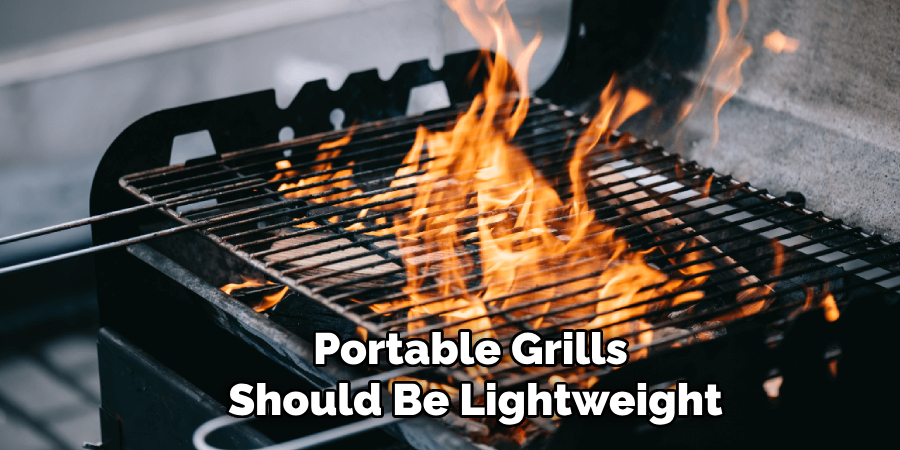
- Fuel Type: Decide whether you prefer the convenience of gas, the traditional flavour of charcoal, or the versatility of an electric grill. Each fuel type has its pros and cons, so consider your cooking style and preferences.
- Size: Consider the amount of cooking space you require. If you regularly cook for a large group, opt for a larger grill with multiple burners or a spacious cooking grate. For smaller gatherings or limited outdoor space, a compact grill might be more appropriate.
- Portability: If you enjoy tailgating, camping, or picnicking, look for a portable grill that is easy to transport. Portable grills should be lightweight, compact, and durable to withstand frequent moves.
- Material and Build Quality: Choose a grill made from durable materials like stainless steel or cast iron to ensure longevity and corrosion resistance. High-quality materials also contribute to better heat retention and more even cooking.
Conclusion
In conclusion, preventing and stopping a grill fire involves a combination of preparation, vigilance, and proper techniques. Understanding the causes of grill fires, preparing a safe grilling area, and maintaining your grill are foundational steps. Monitoring the grill, using a spray bottle, smothering flames, and having a fire extinguisher on hand are crucial for immediate response. Proper disposal of ashes and educating yourself and others about fire safety complete the comprehensive approach to managing grill fires. Thanks for reading, and we hope this has given you some inspiration on how to stop a grill fire!
About
Safety Fic is a distinguished figure in the world of Diy design, with a decade of expertise creating innovative and sustainable Diy solutions. His professional focus lies in merging traditional craftsmanship with modern manufacturing techniques, fostering designs that are both practical and environmentally conscious. As the author of diy, Safety Fic delves into the art and science of Safety Fic-making, inspiring artisans and industry professionals alike.
Education RMIT University
(Melbourne, Australia) Associate Degree in Design (Safety Fic) Focus on sustainable design, industry-driven projects, and practical craftsmanship. Gained hands-on experience with traditional and digital manufacturing tools, such as CAD and CNC software.
Nottingham Trent University
(United Kingdom) Bachelor’s in diyfastly.com and Product Design (Honors) Specialized in product design with a focus on blending creativity with production techniques. Participated in industry projects, working with companies like John Lewis and Vitsoe to gain real-world insights.
Publications and Impact
In diy, Safety Fic his insights on indoor design processes, materials, and strategies for efficient production. His writing bridges the gap between artisan knowledge and modern industry needs, making it a must-read for both budding designers and seasoned professionals.
